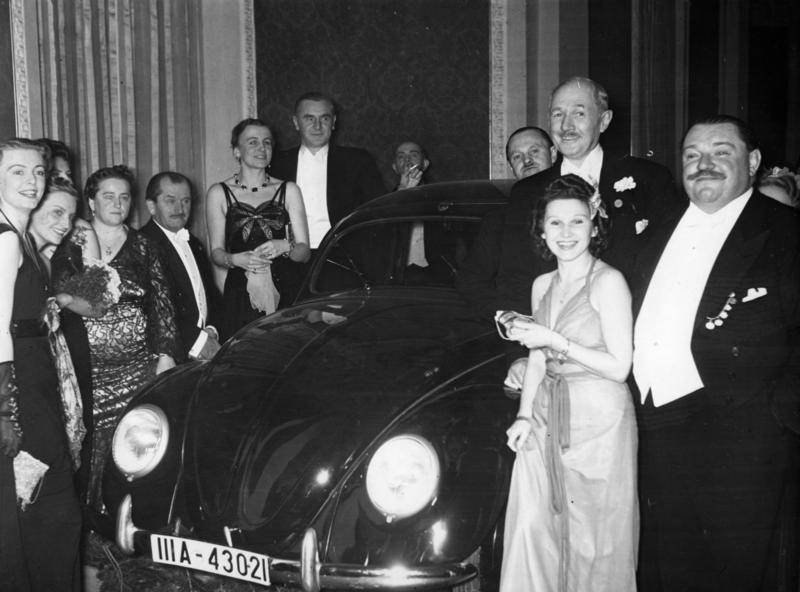
Ferdinand Porsche, International Motorsports Hall of Fame member and Car Engineer of the 20th Century, died on this day in 1941 at the age of 75. Aside from founding the company that bears his name, Porsche developed several other beloved and distinguished automobiles. His first automotive creation, an electric-gas hybrid vehicle known as the Lohner-Porsche Mixte, debuted in 1898. The vehicle, manufactured from 1900 to 1905, became the first mass produced hybrid to combine these two power sources. In 1902 Porsche received military draft orders. During his time in uniform he served as a chauffeur to Archduke Franz Ferdinand of Austria, the crown prince of Austria. His assassination would ignite WWI a decade later.

After his service he spent 25 years working in the automobile industry, including as the chief designer at Austro-Daimler. He designed his last car for Mercedes in 1927, resulting in the 1928 Mercedes-Benz SSK. He would go on to found Dr. Ing. h. c. F. Porsche GmbH (Porsche) in 1931 to provide automobile consulting services for design and engineering of bodies, chassis and engines. The company did not build any vehicles under the name of Porsche. The first project the company completed was designing an engine for a new Wanderer automobile.

The History of Porsche Cars
At the Berlin Auto Show of 1933, the relatively new Chancellor of Germany, Adolf Hitler, announced plans to put Germany on wheels. He detailed two ideas, the first would be to build a people’s car. The second was to develop a state sponsored racing program. Porsche would have a massive role in both of these projects. In June of 1934 Porsche received the contract to build the people’s car, which of course led to the production of the Volkswagen Type 1 Beetle. Porsche participated in the second plan by consulting Mercedes and Auto Union to develop race cars. Both of these companies were to receive 250,000 Reichsmark per year from the German government to assist with their racing development efforts and help bill Germany as an automotive powerhouse.

In 1939 Porsche built the Type 64 using many parts off the Volkswagen Type 1. The car often receives credit as the precursor to the first badged Porsche, the 356, which came nearly a decade later. Some automotive historians go so far as to say this is the first car of the future Porsche company.

During World War II Porsche designed tanks and tank destroyers for the German military. Following Germany’s surrender Ferdinand was arrested for war crimes and held in prison for 22 months. He was released after being found not guilty of charges brought by the French government. While imprisoned, his son Ferry initiated work on the 356/1, the first car to carry the Porsche name.

That prototype vehicle would become the 356, which was road certified for production in 1948. While only 50 cars left the factory in its first year, more than 7,000 hit the road by 1956. By the time the 911 replaced the 356 in 1965, approximately 76,000 had been assembled. Half of those survive to this date.
Ferdinand Porsche died at the age of 75 in 1951 in Stuttgart, Germany. Today, fittingly, Volkswagen Group owns the Porsche car company.





















